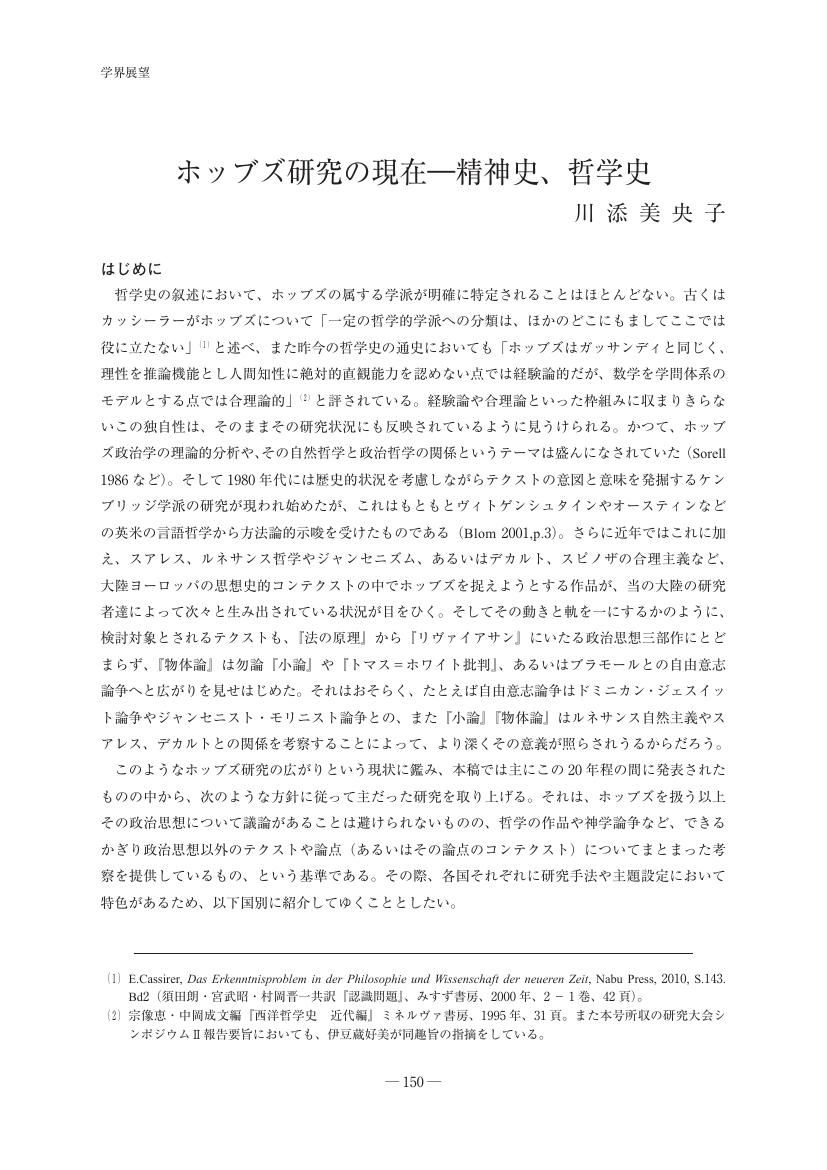6 0 0 0 OA 書評
1 0 0 0 OA 書評
1 0 0 0 OA 書評
1 0 0 0 OA ホッブズ研究の現在―精神史、哲学史
- 著者
- 川添 美央子
- 出版者
- 日本イギリス哲学会
- 雑誌
- イギリス哲学研究 (ISSN:03877450)
- 巻号頁・発行日
- vol.35, pp.150-158, 2012-03-20 (Released:2018-03-30)
- 参考文献数
- 30
1 0 0 0 OA 制作と二つの自然 ―ホッブズの『物体論』に関する一考察―
- 著者
- 川添 美央子
- 出版者
- 日本イギリス哲学会
- 雑誌
- イギリス哲学研究 (ISSN:03877450)
- 巻号頁・発行日
- vol.29, pp.35-48, 2006-03-20 (Released:2018-03-30)
Hobbes regarded the social order as artificial. Though most critics have argued his materialism excludes human productive capacities, this paper tries to show that his notion of nature encompasses metaphysical and epistemological preconditions that enable the mankind to be creative. In his mechanistic conception of philosophy can be found two types of nature: one as the physical world, which consists of matters in motion, and the other as the model science, which is most exemplified in geometry. The former influences our perception of the external world, whereas the latter makes the men capable of forming the civil order. Thus the act of making a commonwealth is made possible and conditioned by the two types of nature.


